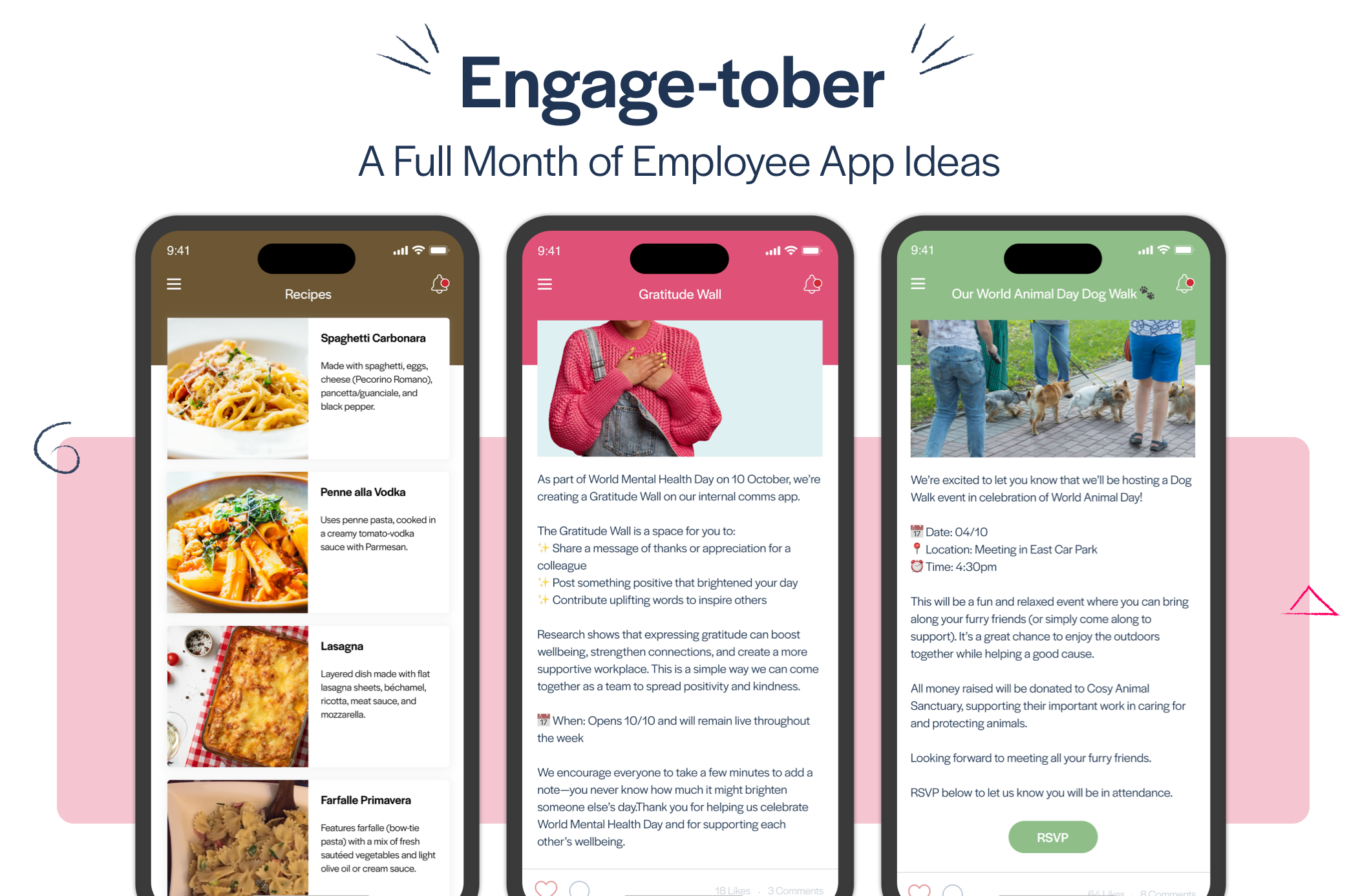
Blog
5 Ways to Boost Your Well-being
Here are some helpful strategies and activities that you can implement into your daily routine to improve your overall happiness and well-being.

As humans, we’re hard-wired to need connection with others. Social interaction is essential to every aspect of our health, and studies have shown that social isolation can lead to health problems such as depression, poor sleep quality, and impaired cognitive and cardiovascular function, to name a few.
It has never been more important to prioritise looking after our health and well-being.
What is well-being and why is it important?
In simple terms, well-being is “the state of being comfortable, healthy or happy”. In reality, well-being is so much more than just saying that we’re happy. Well-being means different things to different people, and factors that may influence one person’s sense of well-being may have no impact at all on another’s. However, we would generally use the term ‘well-being’ to talk about how we feel, how we’re coping with everyday life, how satisfied we are with our life as a whole, our goals and sense of purpose, and how in control we feel in life.
Your overall sense of well-being is fundamental to how fulfilled your life feels. Positive well-being comes with a multitude of benefits, such as reduced anxiety and risk of depression, improved moods, increased self-esteem and a greater feeling of calm – all helping to improve your resilience and ability to overcome difficulties and life’s challenges. In contrast, long-term or ongoing exposure to negative contributors for well-being can increase the risk of us neglecting our physical and mental health and developing bad habits, which in turn can lead to increased stress, poorer memory, reduced concentration and a variety of negative feelings. All of which can make it more difficult for us to cope with daily life.
There is a wide range of factors that can have an impact on our well-being – everything from physical, emotional and social, to financial, career, and environmental factors. And for everyone across the globe, most of these factors have, in varying degrees, been affected by the pandemic.

Top tips for looking after your well-being
The past few years have brought its challenges and has taken its toll on many people’s health and well-being. To help deal with challenging times, we have listed some strategies and activities that you can implement into your daily routine to improve your overall happiness and well-being, in line with the NHS’s 5 Steps to Mental Wellbeing framework.
1. Connect with other people
Relationships are fundamental to our well-being: they can reduce anxiety and depression, build a sense of belonging, increase our self-esteem and empathy, provide emotional and practical support, and allow you to support others in the same way.
Seeing people we care about can instantly lift our spirits, so (in line with the current restrictions), regularly make time to be with your friends or family, with minimal distractions – switch off your phone or TV and give your loved ones your full attention. Catch up with a valued friend you may not have seen in a while. Have lunch with a colleague, and again, give them your full attention. Volunteer within your community if you have free time. And make the most of technology to stay regularly connected with friends and family that you may not be able to see in person.

2. Be active
Exercise is great for your all-round health and well-being. Not only does it improve your physical health and fitness, it also improves your mental health and well-being too by causing chemical changes in the brain that improve your brain function and help to uplift your mood. This in turn can relieve stress and reduce anxiety and depression, replacing negative feelings and contributors with more positive ones, such as increased self-esteem, more energy, better quality sleep and more motivation to eat a healthy, balanced and nutritionally-dense diet: all of which are fundamental to your well-being.
Being active doesn’t need to cost you much – or anything! Why not go for a walk before or after work, or during your lunch break? Take up jogging around the block. Or check out YouTube’s wealth of home workout videos that can help you to get moving in as little as 10-20 minutes.

3. Keep learning new skills
Research over the years has shown that learning new skills can also help to improve your mental well-being by boosting your self-confidence and self-esteem, building a sense of purpose and helping you to connect with others. And much like being active, there are lots of different and easy ways to build the habit of learning into your daily routine without costing much time or money.
It can be as simple as learning a new recipe or reading a new book; taking on a fun hobby that challenges you or a new responsibility at work that involves developing your skills; signing up for a course online or at a nearby educational centre; or working on a DIY project at home that you’ve being thinking about for a while.

4. Take notice
Paying attention to the present moment can be really beneficial to your mental well-being, as it can provide immediate relief from anxiety and stress. Being in the moment simply means paying attention to what’s going on in your head (with your thoughts and feelings) your body, and in the world around you. This can be referred to as ‘mindfulness’ and can have a huge impact on your overall health and well-being, including lowering blood pressure, alleviating pain and heart problems, and improving sleep. In the long term, it can help you to enjoy life more, understand yourself better and change how you approach challenges.
There are many different types of mindfulness practices. Simple ways of introducing mindfulness into your daily life can include just noticing our everyday experiences and sensations, such as the food we eat, the sounds around us and the feeling on our skin of being outdoors. Watching and naming our thoughts and feelings can also be very helpful. By focusing on even the small things, we can interrupt the ‘autopilot’ mode we often find ourselves slipping into and become more conscious of how we’re feeling, which then enables us to take action if we need to get ourselves out of a bad mood.

5. Do something nice for others
Acts of giving and kindness can have a great impact on your mental well-being. Not only does it help you connect with other people, it also gives you a sense of reward and feelings of positivity, purpose and self-worth.
A nice gesture doesn’t have to be a big one – even the smallest acts of kindness can increase happiness for both someone else and yourself. These acts could include saying thank you to others for helping you, spending time with people who need support, buying someone a coffee and really listening to them, and volunteering in your local community. Take some time out of your day to do something nice for someone else and watch as it gives you a good mood boost.

Useful links and resources
There’s no one-size-fits-all approach when it comes to looking after your mental and physical health – positive contributors to well-being differ from person to person. Whether you’re looking after yourself or are responsible for others, such as friends, family or employees, we’ve pulled together some useful resources and links below that include great tips on how to look after your well-being and support others.
For employers
- Mental Health UK – Downloadable Resources
- Mind Mental Health Charity - Taking Care of Your Staff
- Well-being in the Logistics Sector
- Caring For Your Employees in Healthcare
- Supporting Employee Well-being Within Local Authorities
- Port of Tyne Lockdown challenge
For employees and individuals
- Mental Health UK – Downloadable Resources
- Mind Mental Health Charity - How to Improve Your Mental Wellbeing
- Tips for Managing Stress
- Looking After Yourself While Working from Home









